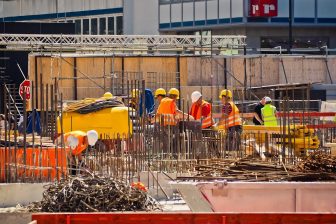The chancellor announced yesterday that there would be a £7.1bn funding for a National Home Building fund, which is good news for regional housebuilders.
Analysis by Close Brothers Property Finance, the specialist development finance provider, revealed earlier this week that housing completions are set to drop by at least a third.
It said that housing completion levels by the seven largest UK housebuilders, which are responsible for 43% of the new homes built across the UK, are down by 35% on average over the last 12 months.
This significant fall in supply from the major housebuilders is likely to be at least mirrored across the small and medium sized Enterprises (SMEs) housebuilding industry.
A recent survey conducted by Close Brothers Property Finance and the Home Builders Federation (HBF) found that close to 40% of SME’s projected their growth to be down this year by between 10-50%.
The fresh funding boost announced by the chancellor should therefore provide a timely boost to the sector.
Heather Powell, head of property at tax and advisory firm Blick Rothenberg, said: “Access to development finance at affordable rates is essential to ensure that the new homes this country needs are delivered. The funding will also ensure jobs are retained in the industry.
“It is to be hoped that it will also give private developers the confidence to invest in training apprentices and the modern methods of construction that need to be embraced to build energy efficient homes.”
Dominic Agace, chief executive of Winkwortk, commented: “It is positive to see the government continue to reaffirm their commitment to the property market, their commitment to a £7.1bn homebuilding fund and the £12.2bn affordable homes programme, while showing an understanding of the many dimensions involved.
“It is not just building new homes but improving the environment we live in. Often, local communities have resisted new homes being built as the local infrastructure comes under considerable pressure.
“New build designs may often be considered incongruous with local styles, to the detriment of existing residents’ enjoyment of their local areas. If there is infrastructure to support local communities and greater emphasis on design, then we will hopefully see less conflict between planners and the provision of new homes. Ultimately, this should mean more homes being built to help people get on the housing ladder.”
Buoyed by the stamp duty holiday, demand to buy still outstrips the supply of housing by some margin, so the need to increase the housing stock grows ever more urgent, according to John Goodall, economist and CEO of Landbay.
He said: “The chancellor’s £7.1bn national home building fund is a step in the right direction but needs to translate into action, so we really see more homes being built and quickly.
“With unemployment to hit 7.5% next year and stamp duty reintroduced, it will be harder for many people to buy, but that doesn’t take away the need for housing.
“With councils and housing associations unable to meet this need, that demand will inevitably fall on the private rental sector instead. While the government needs all the income it can get, a tapering of the stamp duty holiday beyond 31st March and support for landlords to provide good quality rental property is what is needed to help meet this housing need as the need for rental property is likely to hit heights not seen in modern times.”



Comments are closed.